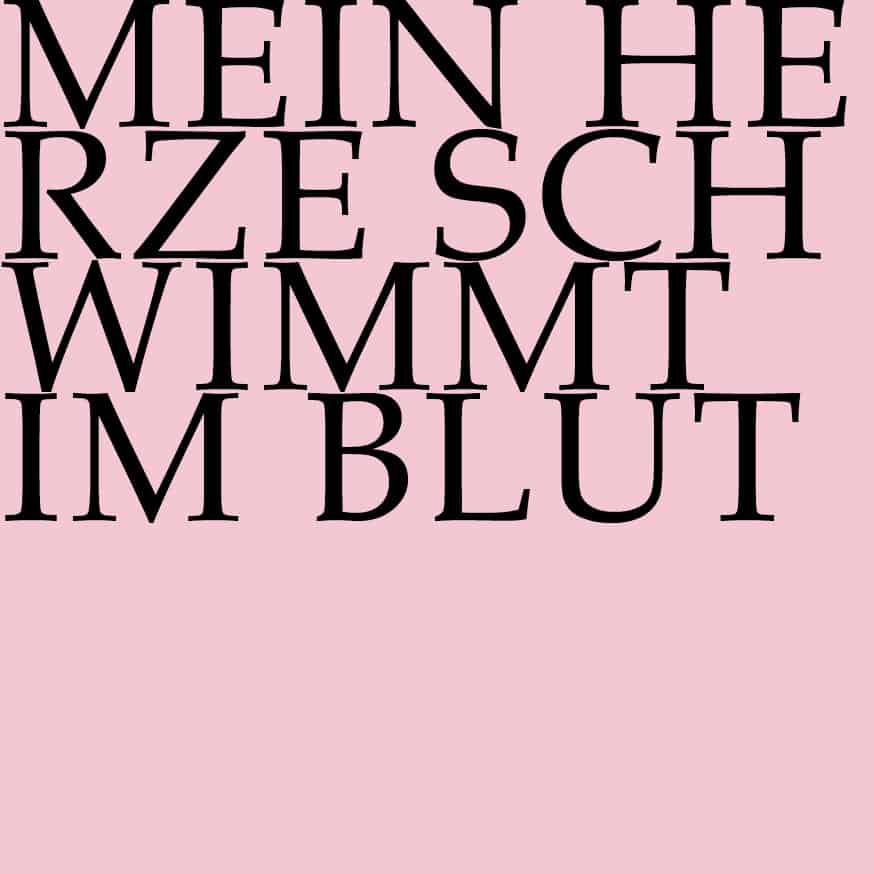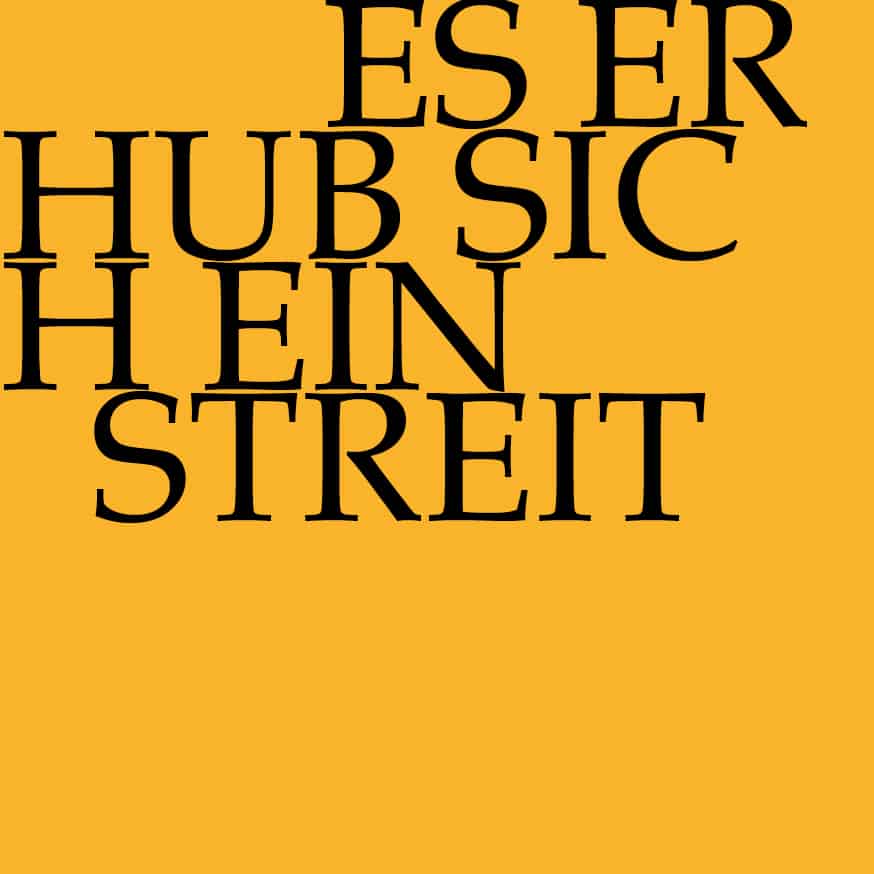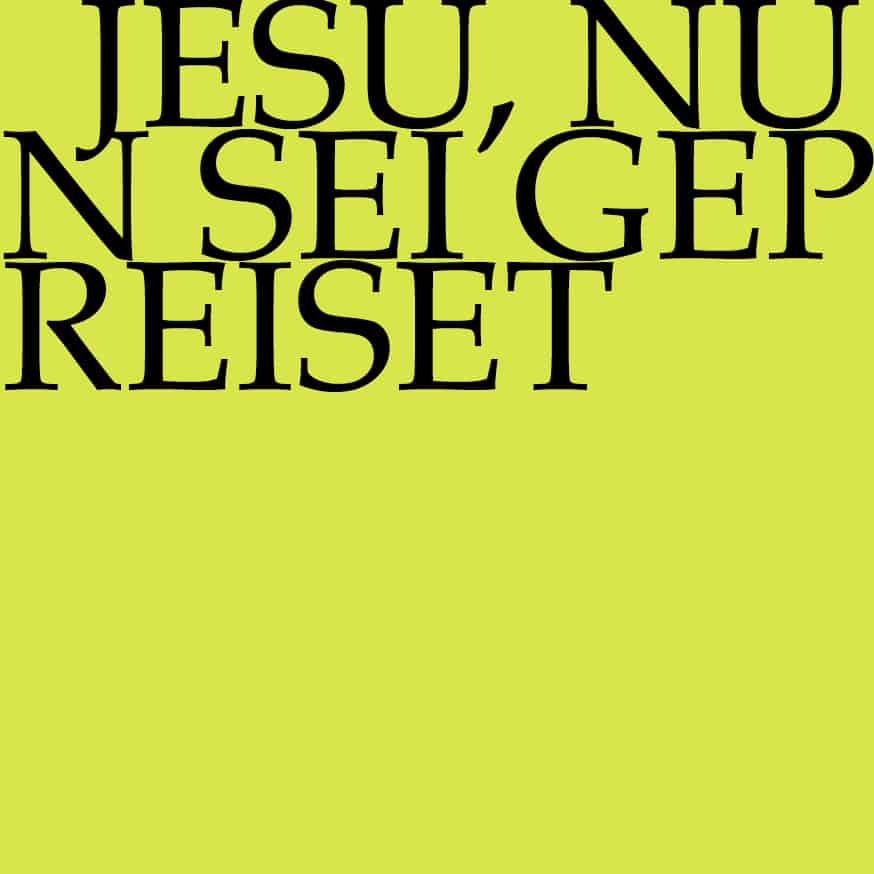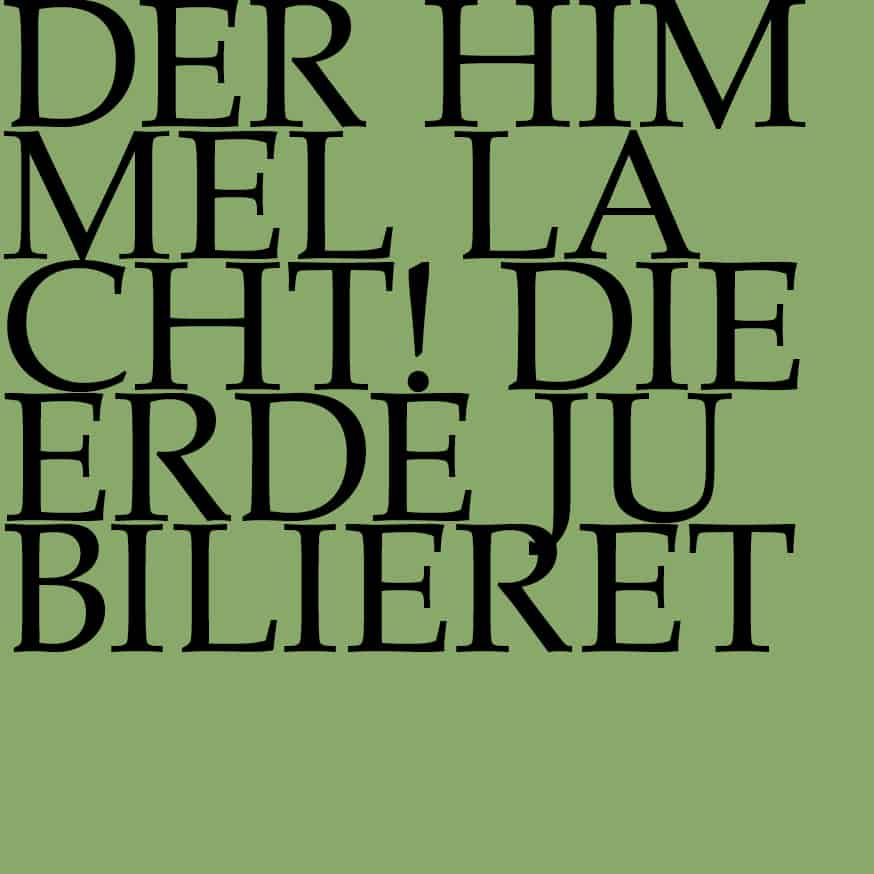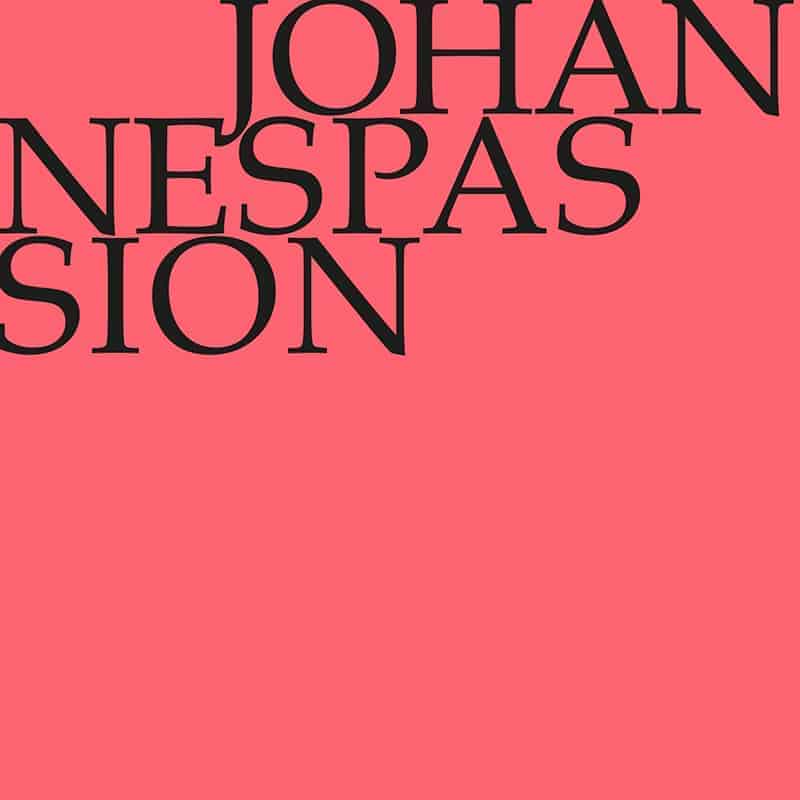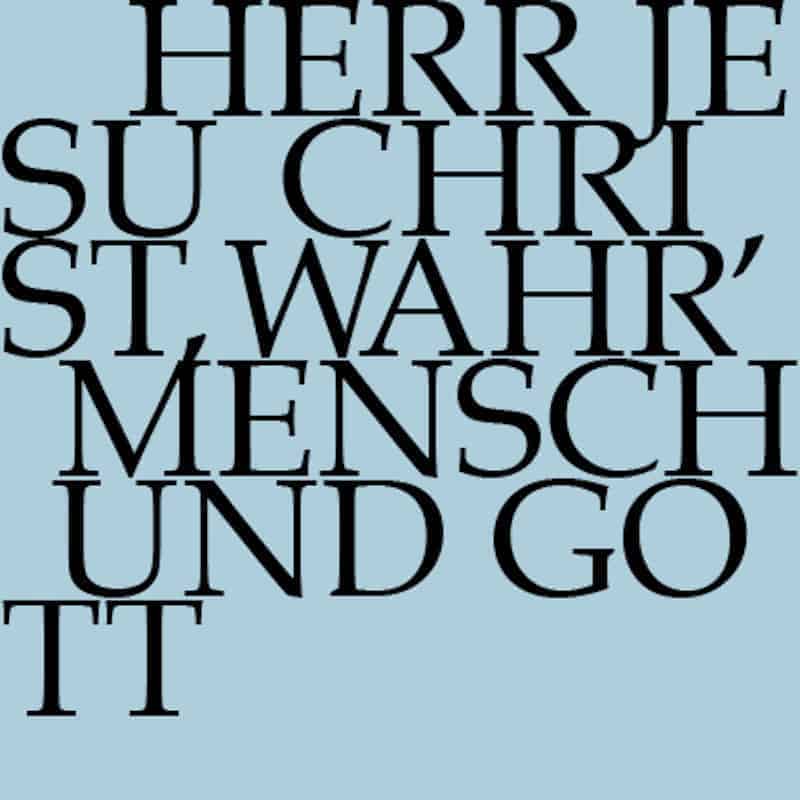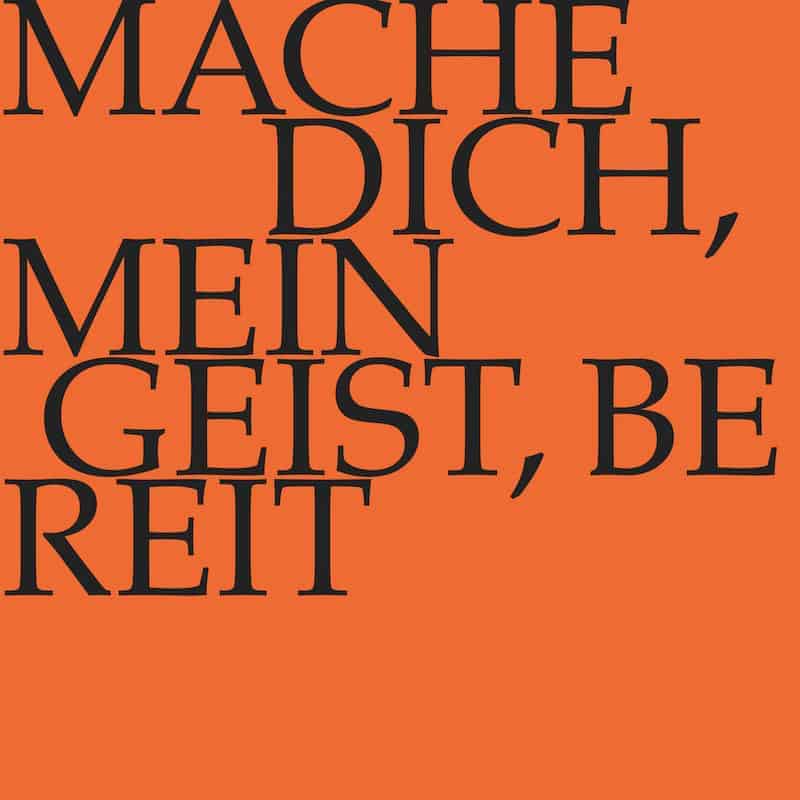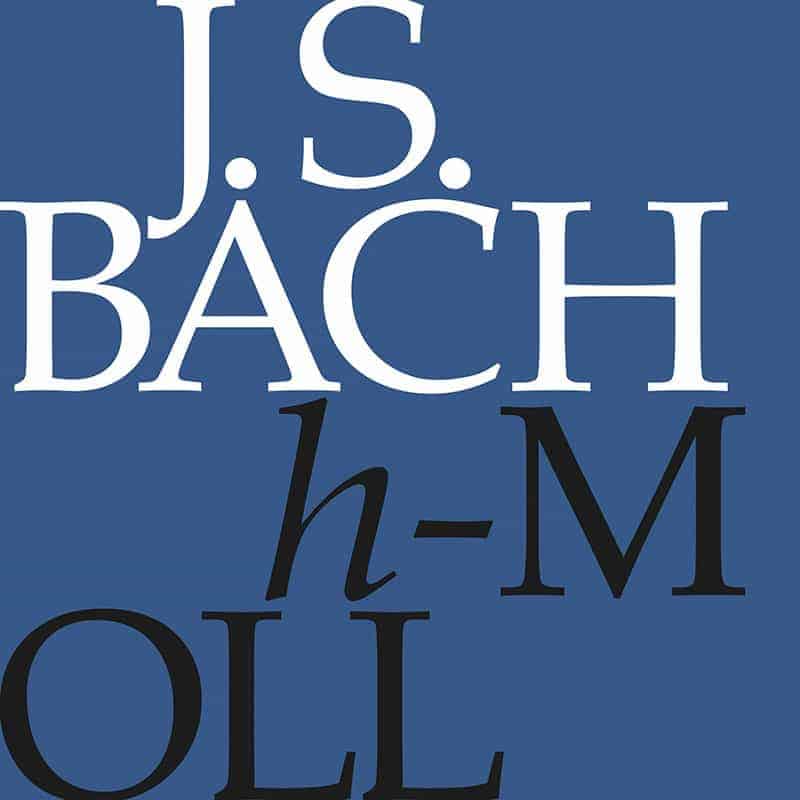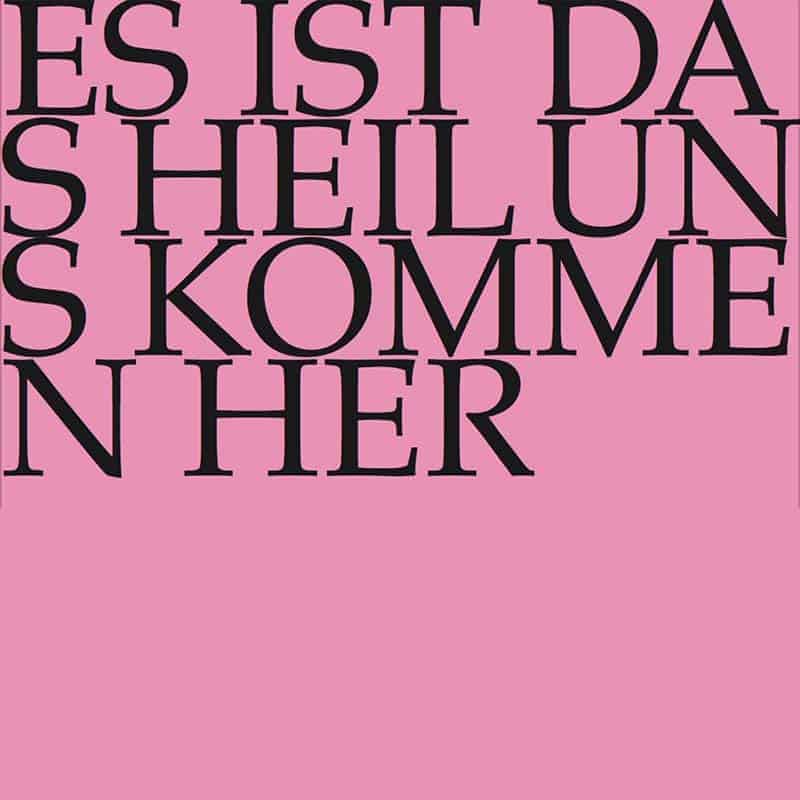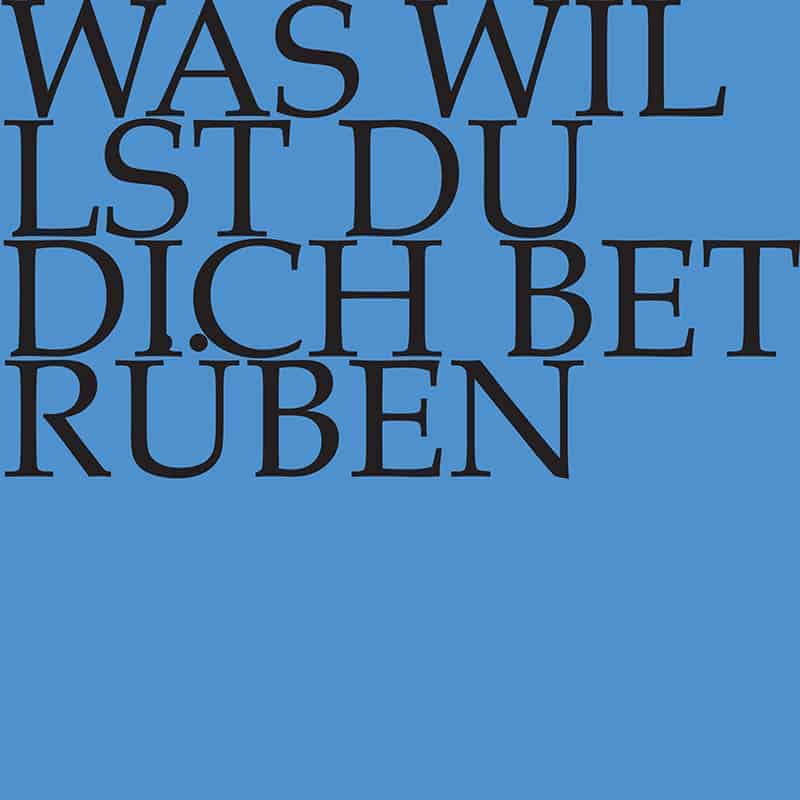(My heart doth swim in blood) for soprano, oboe, strings and basso continuo
Archives
Es erhub sich ein Streit
(There arose a great strife) for soprano, alto, tenor and bass; vocal ensemble, oboe and oboe d’amore I+II, taille, trumpet I-III, timpani, strings and basso continuo
Jesu, nun sei gepreiset
(Jesus, be now exalted) for soprano, alto, tenor and bass, vocal ensemble, trumpet I–III, timpani, oboe I–III, strings and basso continuo
Der Himmel lacht! Die Erde jubilieret
(The heavens laugh! The earth doth ring with glory) for soprano, tenor und bass, vocal ensemble, trumpet I–III, timpani, oboe, taille, strings and basso continuo
Johannespassion
(St John Passion) No listener can be left unmoved by the bleak magnificence of the introductory chorus “Herr, unser Herrscher” (Lord, thou our master), set to the text of Psalm 8. Throbbing bass notes, streams of blood and violent blows in the middle voices as well as incessant friction in the mercilessly descending woodwinds create … Read More
Herr Jesu Christ, wahr’ Mensch und Gott
(Lord Jesus Christ, true man and God) for soprano, tenor and bass, vocal ensemble, flauto I+II, oboe I+II, trumpet, strings and basso continuo Cantata BWV 127 was composed for Estomihi in 1725. It is widely considered one of the highlights of Bach’s chorale cantata cycle, no doubt by virtue of its motivic density and its … Read More
Mache dich, mein Geist, bereit
(Get thyself, my soul, prepared) for soprano, alto, tenor and bass, vocal ensemble, transverse flute, oboe d’amore, horn, violoncello piccolo, strings and basso continuo
Messe h-Moll
(Mass in B minor) for soloists, choir and orchestra The Mass in B Minor, hailed in 1818 as the “greatest musical composition of all times and all cultures” by its first publisher, Hans-Georg Nägeli of Zurich, is today revered as one of the greatest works in the history of classical music. Not only has the composition … Read More
Es ist das Heil uns kommen her
(Now is to us Salvation come) for soprano, alto, tenor and bass, vocal ensemble, transverse flute, oboe d’ amore, bassoon, strings and basso continuo Composed for the Sixth Sunday after Trinity in 1724, cantata BWV 9 “Es ist das Heil uns kommen her” (Now is to us salvation come) proffers a charming display of the … Read More
Was willst du dich betrüben
(Why wouldst thou then be saddened) for soprano, tenor and bass, vocal ensemble, transverse flute I+II, oboe d‘amore I+II, cornett, bassoon, strings and continuo Composed for the Seventh Sunday after Trinity in 1724, all movements of the cantata “Was willst du dich betrüben” (Why wouldst thou then be saddened) are based on the hymn of … Read More


